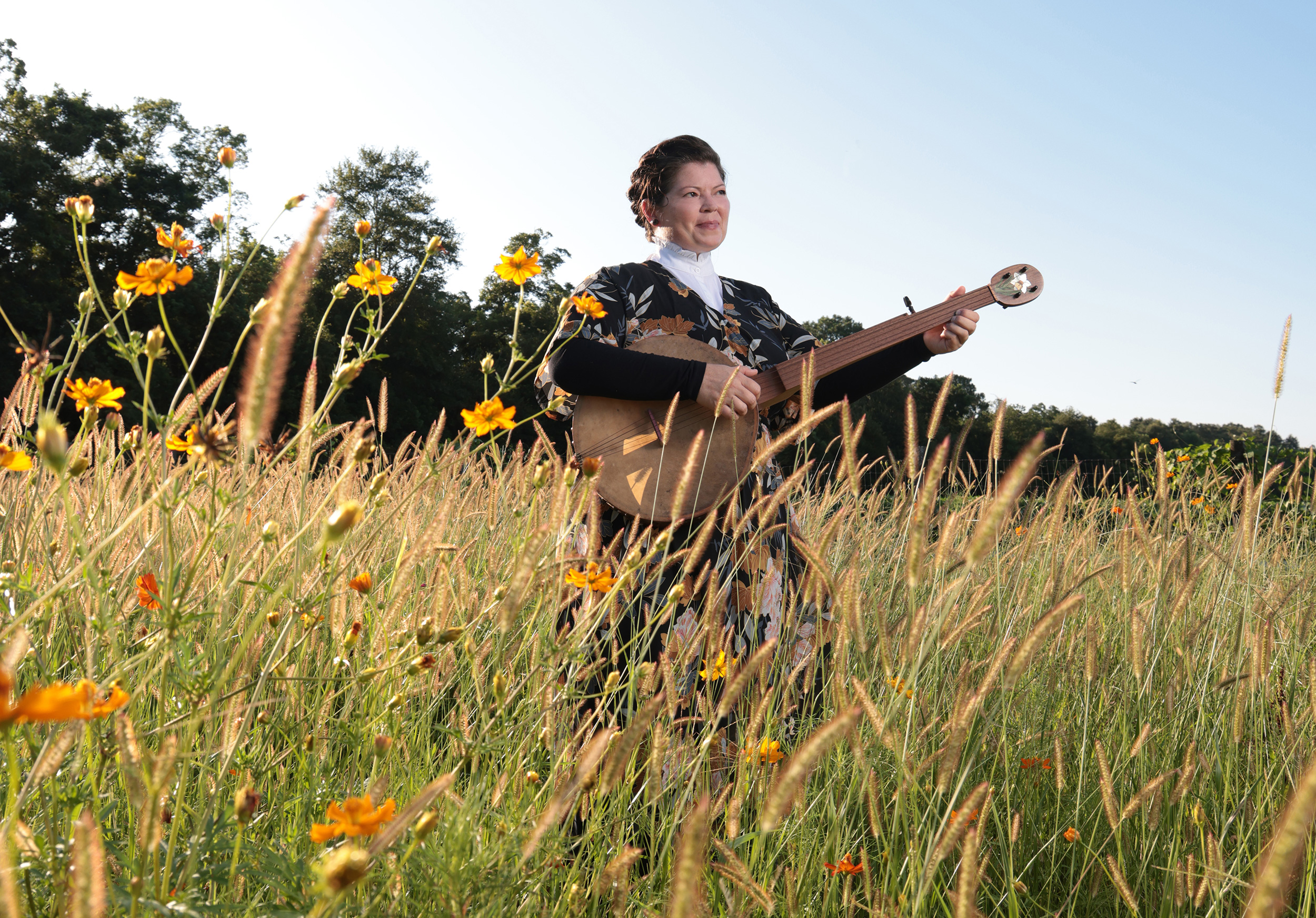
One way or another, chickens play a big part in Emily Ellis’ work routine. There are at least 80 of them, maybe more, on the grounds of her family’s farm toward the southern end of Fairhope. Their herky-jerky movements tend to catch Ellis’ eye as they preen and prance outside the workshop where she carefully crafts her banjos.
“Some of them are right outside my window here, and they’re funny to me and they all have their own personalities,” Ellis says. “It’s like having an aquarium on land. You can sit and watch them and it’s kind of the same feeling as looking at an aquarium full of fish. It’s just really nice, really relaxing.”
Inspirational, too. Chickens and other critters regularly show up in the form of the intricate wooden inlays that make the hand-built instruments from her Ellis Banjo Company as artistic as they are musical. Two chickens chase bugs along the neck of one of her recent productions. A lifelike little possum clings to a tree on the headstock of another.
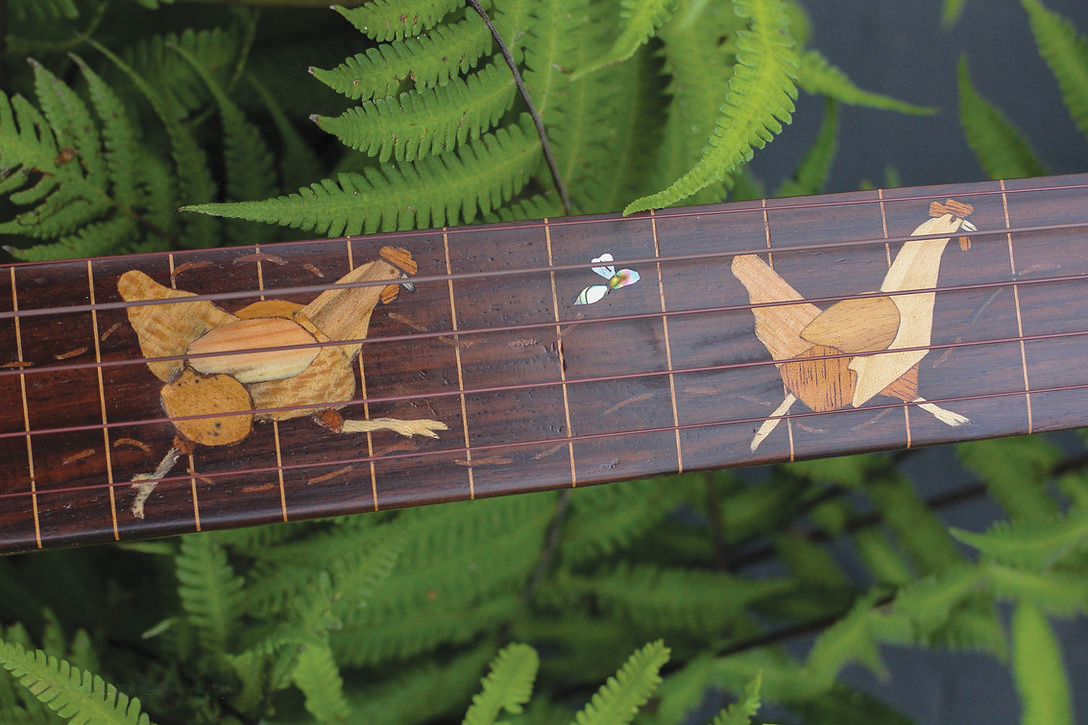
Ellis has been creative in marvelous ways for much of her life, but it’s still a surprise to many who have known her a long time that she’s turned so fully to building banjos and selling them commercially. To do such a thing is a rarity, for sure. Even she hasn’t heard of any other women doing it, and she’s pretty well tuned in to the banjo world. Another distinction is that she makes many of the instruments from gourds that she grows herself out there among the chickens.
“There’s just something amazing about cutting a vegetable open and putting strings on it and playing it and singing along with it,” she says. “It’s like you’re hearing the sound of your own earth.”
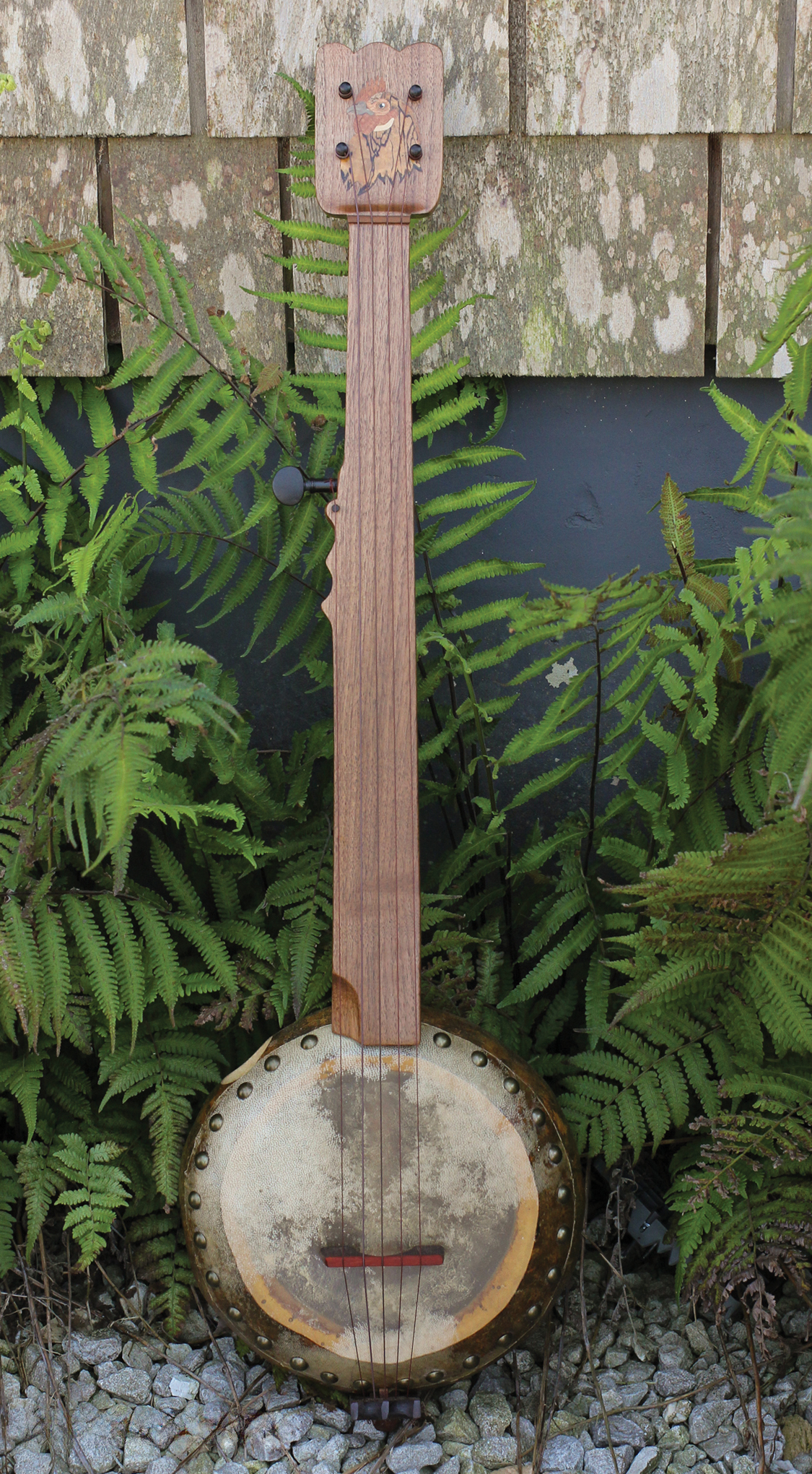
In her case, that’s a particularly accurate description. She and her husband, Joel Richards, live on land that’s been in her family, on her mother’s side, for five generations. Though it’s bordered by fast-growing commercial and residential development, she feels fortunate that their family compound remains an agrarian enclave. Besides her family and those chickens, their surprisingly secluded space is also home to two horses and a pony, a pig and a dairy cow, a tortoise and a rabbit that’s missing half an ear.
Her father’s family is a very musical one with its own deep roots on the Eastern Shore. Her paternal grandparents were the proprietors of the beloved Jack Ellis restaurant on Fairhope Avenue. Her dad is David Ellis, who has entertained crowds from behind the piano at the Grand Hotel’s lounge for literally half a century and also served as band director at Adams Middle School in Mobile. Emily is a pianist, too, and was good enough on the trumpet to earn a scholarship at the University of South Alabama.
The banjo came into her family history about 12 years ago when she was sick with pneumonia and her husband bought her one to keep her occupied as she lay bedridden. It was a traditional type of banjo, the kind that bluegrass players favor, while she has come to prefer a different variety. Her banjos are designed to be tuned to a lower pitch and played in the “clawhammer” style, which is more rhythmic and strummy than the complex bluegrass picking that you tend to hear more often.
“It’s a down-stroke style of playing where you play with your first or second finger,” she explains, “striking the strings downward instead of picking them upward like you do with finger picking. And you’re striking the strings with the back of your finger, as if you’re holding a hammer.”
She had played guitar a bit, but it sounded sad to her.
“Banjos are just naturally happy instruments,” she says. “They’re upbeat, punchy and fun.”
In just a couple of years, Ellis has built and sold nearly 30 handmade banjos, with prices starting at around $1,000. She also builds the more conventional “rim style” banjos with their flatter, circular bodies. To make the rims, she steams sheets of curly maple and bends them into shape. She uses various hardwoods for the necks and other parts, selecting them based on their density and their aesthetic qualities. For the heads, she employs brass tacks and rawhide laces to secure stretched-out goat skin in place.
It’s painstaking work, and she wouldn’t have it any other way. There are computer-controlled machines that can churn out precision musical instruments by the dozens in a day’s time, but Ellis wouldn’t dream of using one. Instead, the tools of her trade include a variety of chisels, a Japanese pull saw and rasps that are normally used on a farm to shape a horse’s hooves.
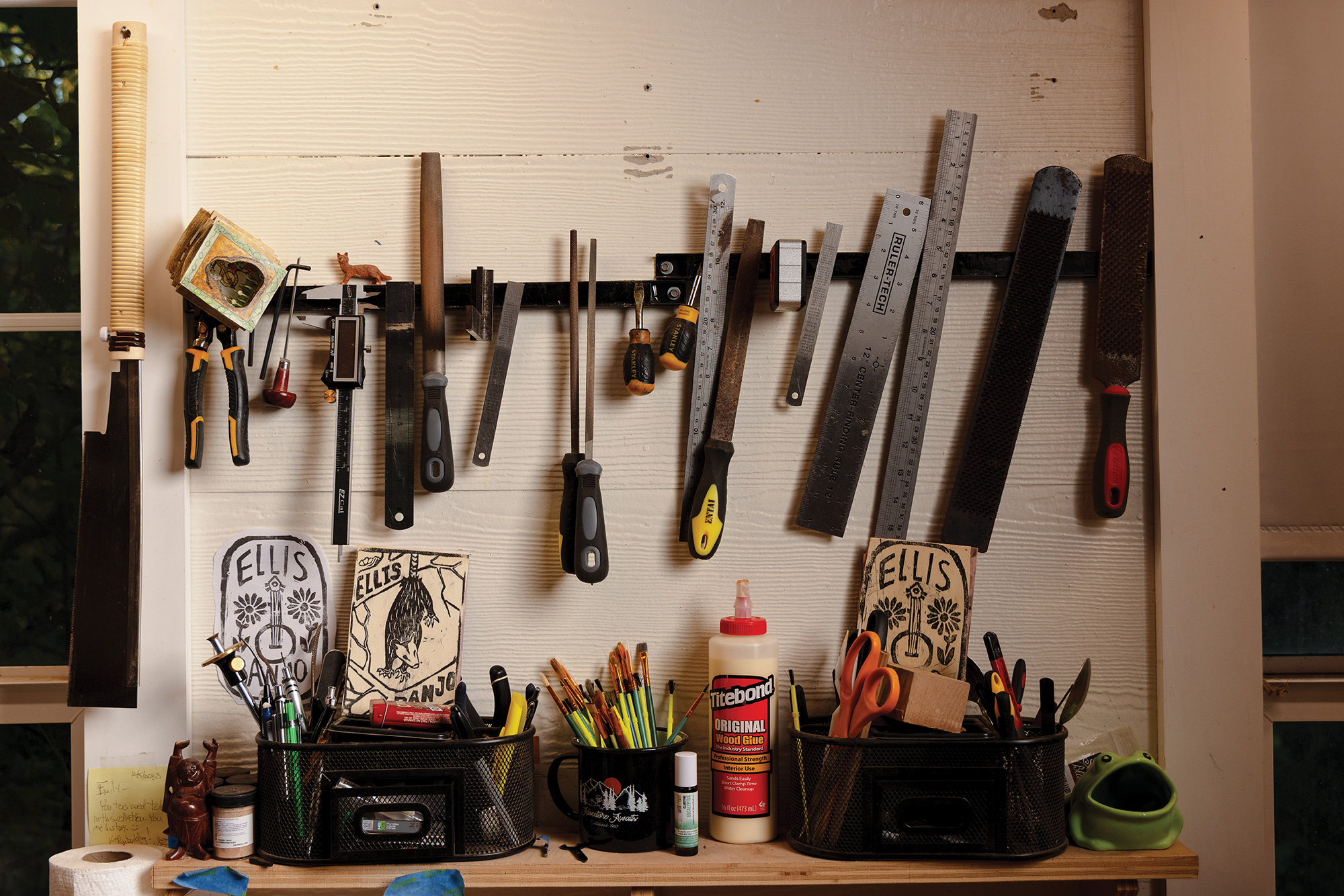
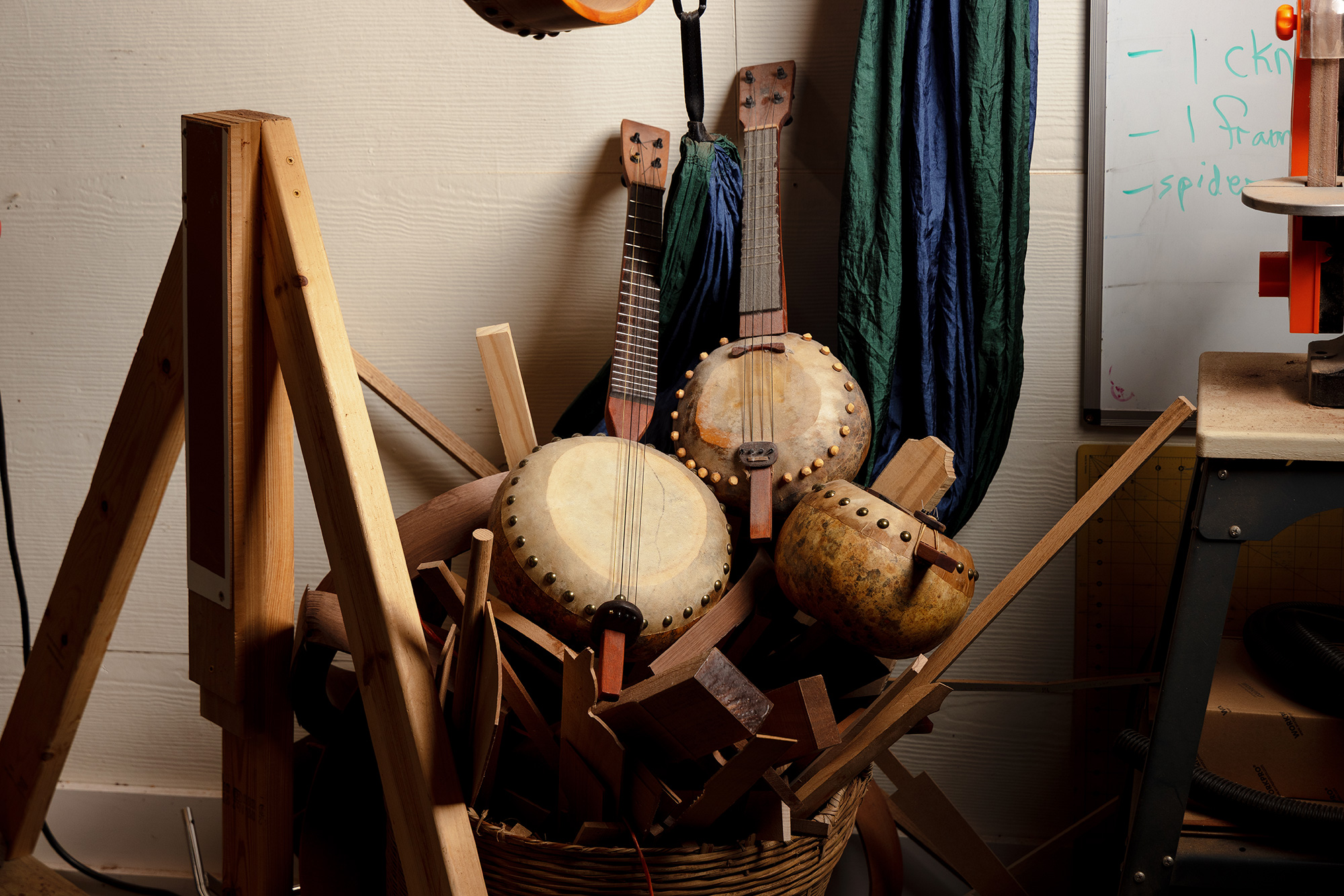
The people who favor the kind of banjos she builds are those who enjoy playing what’s known as “old-timey” music. In some ways, that same description could apply to Ellis.
“I’d live by candlelight if I could,” she says, and launches into a wonderful story about riding her horse, Jake, down to the shore in Point Clear when she was a girl. It’s worth retelling here because it illustrates the remarkable changes to our coastal community within her lifetime.
She grew up in the Crichton area of Mobile but spent much of her spare time with extended family members across Mobile Bay.
“Old Battles Road was a dirt road then, and I would gallop down that road with a harmonica and a sandwich in my saddlebag,” Ellis recalls. “I would stop at the Punta Clara Candy Kitchen, which was my Aunt Dot’s place, and she would hand me one of those chocolate suckers that were frog shaped. Then I’d ride down Zundel Lane and go swim in the bay. There used to be a beach there.”
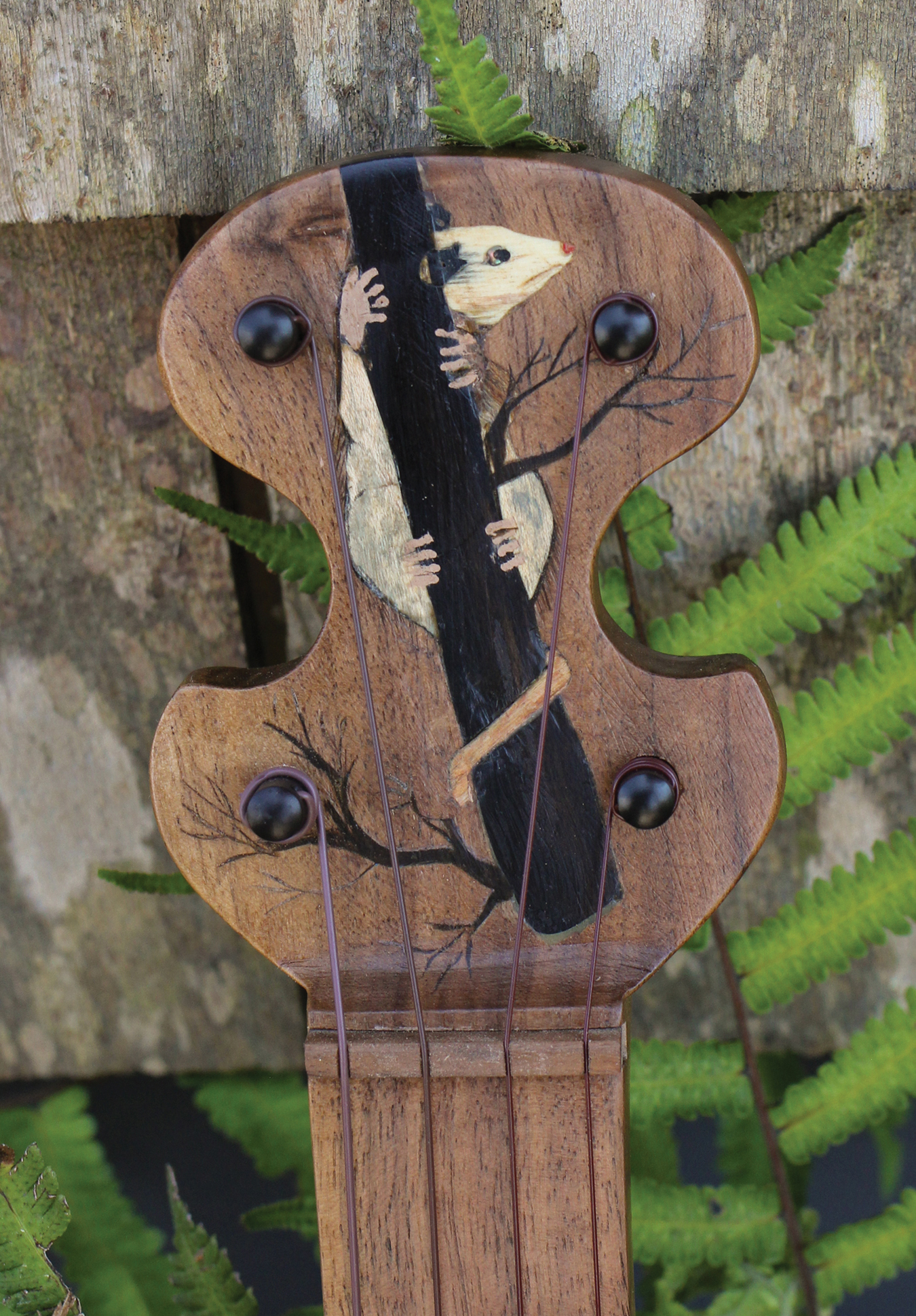
Today, a subdivision is visible from the yard in front of the two-story farmhouse that she and her husband, who is a structural engineer, built themselves. They have two daughters who are on creative paths of their own. Julia, whose instrument is French horn, is attending the University of Cincinnati’s College-Conservatory of Music on a scholarship. Julia’s younger sister, Molly, is a skilled visual artist like her mom.
It’s obvious that Ellis puts lots of attention into the visual appeal of the instruments. Consider that decorative possum in the tree, for instance. She spent quite some time contemplating whether to sand it smooth like you customarily do with inlay, or leave it with a rough, uneven texture like possums have in real life. She knows a lot about this because she used to raise them when she was young.
“I want all of my inlays to tell a story,” she says. “I’ve got the chickens chasing the bugs and I’ve got other ideas, too, like a fox chasing a chicken and stuff like that. I want them to have a real folk art feeling.”
She makes sure they perform beautifully, too.
“I’ll take each one out on the back porch and play and sing with it for a couple of weeks to make sure it’s right, and I’ll make some adjustments if I need to,” she says. “It has to be a banjo that I would want to play.”
Ellis Banjo Company • ellisbanjo.com





